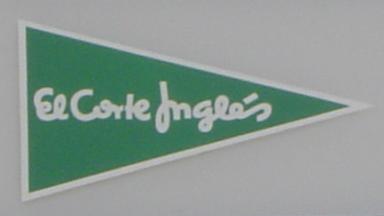Tipos de recursos
en la empresa (Types of resources in the company); Tangibles (Tangible);
Intangibles (Intangible); Humanos (Human); Físicos (Physical);
Financieros (Financial); Reputación (Reputation); Tecnología
(Technology); Cultura (Culture); Conocimiento (Knowledge); Comunicación
(Communication); Motivación (Motivation)
A company
can have three types of resources:
TANGIBLE
RESOURCES
They are
the easiest of resources to identify because you can see them, you
can touch them and you can value them. We can distinguish two types:
- Financial
- Physical
INTANGIBLE
RESOURCES
Nowadays,
they are very important for companies. In fact, many companies benefit
more from intangible resources than tangible resources. These resources
do not appear on the comapny's books and it is not easy to value them.
Here are some examples of intangible resources:
- Reputation.-
the level of trust the consumer has with the company. If a consumer
trusts a company, they will be willing to pay a little extra for
that company's product or service, Without a doubt, this is an extremely
important competitive advantage. Reputation also includes the reputation
a client has amongst clients, the reputation of the company's products
and the relationship a company has with its supplies, public administration
team and with society.

- Technology.-
this is a really valuable resources for company's that exploit it.
It is related to innovation and intelectural property, for example,
brand registration, patents, rights of ownership, commercial sercrets.....

- Culture-
this is one of the most intangible resources but at the same time
the most valuable and that is the culture identifies the company:
the way they work, their routines, their behaviour...

HUMAN RESOURCES
Se relacionan
con todo aquello que ofrecen las personas a las empresas en las que
realizan su actividad laboral. Es muy complicado dirigir un equipo
de personas debido a la heterogeneidad de todas ellas. Son difíciles
de valorar porque, como ocurre con los recursos intangibles, no aparecen
en los estados contables, y es que una persona está contratada
por una empresa, pero no es de su propiedad. Los recursos humanos
son un activo, si, importantísimo para que la empresa sobreviva,
pero no aparece su valoración en el activo del Balance de la
empresa.
Las personas
deben poseer conocimientos y destrezas, que deben poner en juego dentro
de la empresa, bien de forma individual o bien desde el trabajo en
equipo.
Las empresas,
como cualquier otra organización, son lo que las personas que
están dentro de ellas quieran que sea. De cómo sean
las personas podemos sacar una idea de cómo es la empresa:
cuales son sus valores, como es su forma de organizarse, de trabajar,…
en general lo que es la cultura de la empresa. Tres aspectos muy importantes
consideran las empresas que deben tener las personas que trabajen
en ellas:
- Knowledge
- Communication
- Motivation